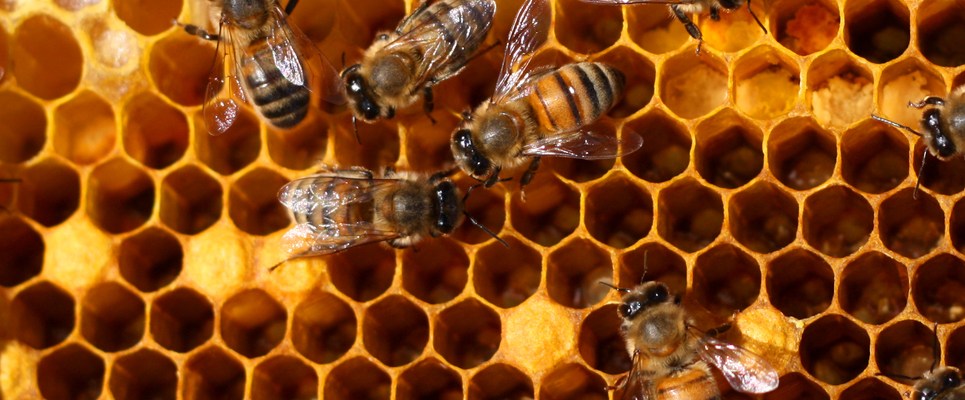|
By Yameng Zhang
Edited by Thomas Luh Last summer, I stumbled upon Bernard Mandeville’s The Fable of the Bees during my time learning how to keep bees in the mountains of Yunnan Province. The poem was not quite the introduction to beekeeping I was looking for, but it is an allegory relating the actions in the beehive to economics and social human behavior. Mandeville discusses how responsibilities and social behavior lead bees toward prosperity. From bees, we can learn a lot. No one can deny that they are far more than just a source of honey; they are intelligent social animals. Covered from head to toe on the beekeeping farm, I found myself unable to stop thinking about Mandeville’s poem: “A Spacious Hive well stock'd with Bees, That lived in Luxury and Ease; And yet as fam'd for Laws and Arms, As yielding large and early Swarms; Was counted the great Nursery Of Sciences and Industry. No Bees had better Government, More Fickleness, or less Content.” This exactly seemed to be the prosperous scene in the beehives I was tending. Bees have built their unique but highly ordered society over thousands of years. In E.O. Wilson’s book, The Social Conquest of Earth, he says that bees cannot evolve to human intelligence because of their small brains, but he implies that these delicate creatures possess incredible intellectual ability for their size. What is the nature of their intellect? Scientists, I learned, still do not know. We cannot even decipher bees’ language. Does the possibility exist that the busy colony of bees might not act from instinct, but from an intellect, one that can even rival that generated from the sophisticated human brains? This thought is disturbing for many people, because if it were true, we would have to embrace the fact that one third of our agriculture is controlled by creatures as clever, or to say as crafty, as us. We will not, however, face immediate “threat” from bees, at least not anymore. Since 2006, bees have declined 50% in number in Europe and the United States. Scientists use the term Colony Collapse Disorder (CCD) to explain this phenomenon. (In fact, scientists just use the term to name the phenomenon, but have not succeeded at explaining the phenomenon yet.) I was concerned at heart. The extinction of bees would mean a world without eighty percent of its current crop production: imagine meals without cucumbers, potatoes, apples, berries, almonds, or even coffee. A decline of bees could, in turn, result in a loss of biodiversity as well, which would cause negative ripple effects throughout our world. After three weeks as a beekeeper, I began to understand these creatures better. I understood the entire process of honey production—from tending beehives, to exacting honey from combs and packing the purified honey into bottles. The first time I extracted honey from beehives, I caught a drone bee and put it on the palm of my hand. While it zoomed curiously, without direction, on my skin, I felt a magnetic connection. I truly understood what Mark Winne, an expert in food security, refers to as the “primal unity between humanity and nature.” Through this experience, I gradually came to understand some of the causes of CCD. The growth of industrialized agriculture is a significant one. We prevent birds from consuming pests, and use pesticide instead; we do not care about the weather, and plant vegetables and fruits in greenhouses; we do not consider the creation of a bio-system, and conduct monoculture on a huge scale. Our new production system removes the natural aspect from the growth process, including the role of bees (considering the artificial pollination). If we alienate nature, there will be consequences. Would the scene in The Fable of the Beeshappen? In the text, Mandeville does not mentions why the bees in an abundant society suddenly change their behavior, lose interest in honey production and instead “all the Rogues cry'd brazenly, Good Gods, had we but Honesty”. Could I say that the neonicotinoid in pesticides interferes with bees’ nervous systems, causing their brains to work incorrectly? My passion for bees derives in part not just from my admiration for this species, but from the guilt for what human beings have done to nature. Is it too late? Will we be able to prevent the extinction of bees and their continued role in organic agriculture? Most importantly, if bees stand up and embrace their extinction, what is next for us?
0 Comments
Leave a Reply. |
Categories
All
Archives
April 2024
|

